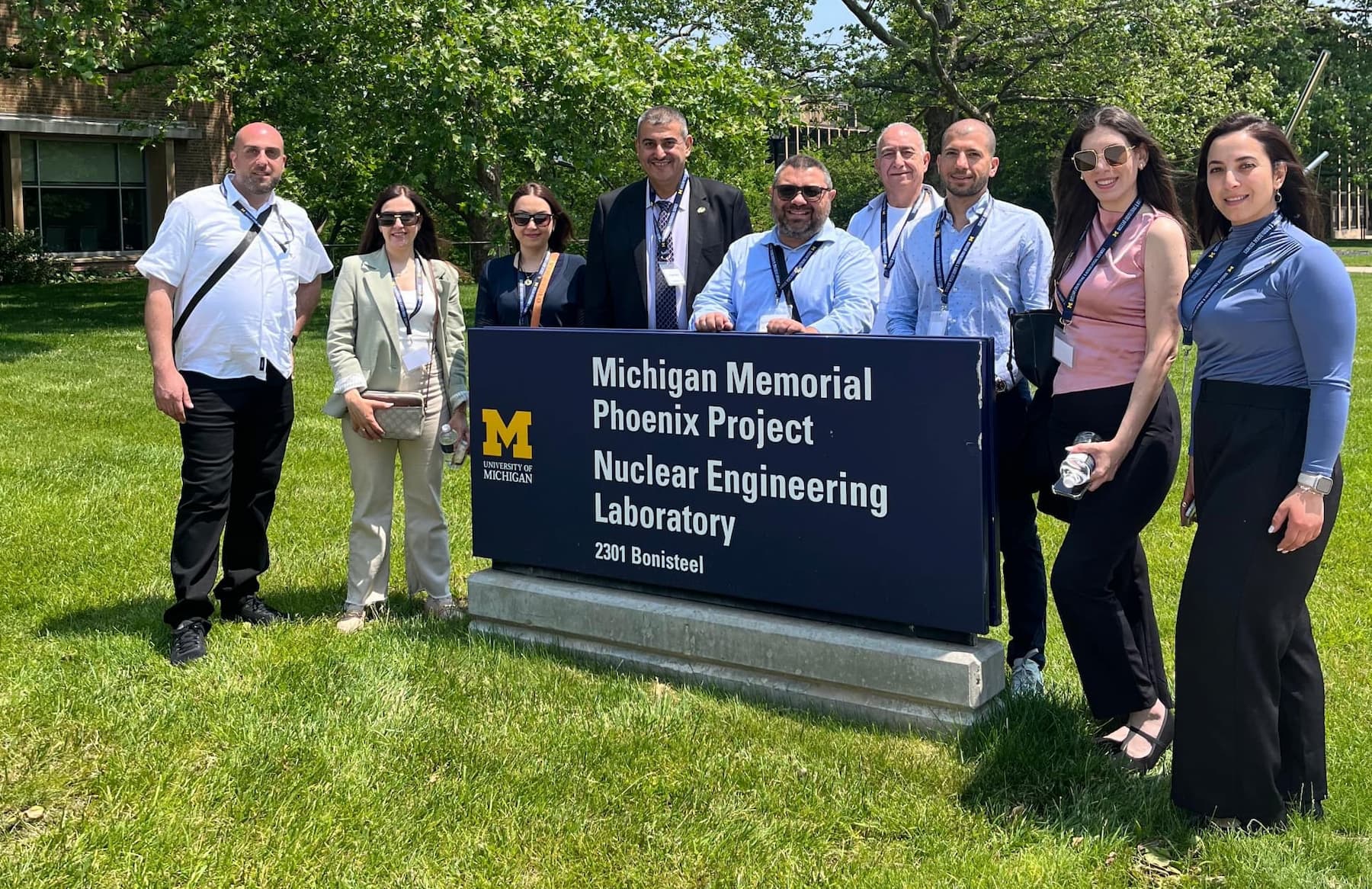
Building bridges through clean energy and workforce collaboration
Fastest Path to Zero hosts delegation from the West Bank to explore sustainable development, university partnerships, and economic growth.

Fastest Path to Zero hosts delegation from the West Bank to explore sustainable development, university partnerships, and economic growth.
Last month, the Fastest Path to Zero Initiative welcomed a delegation from the West Bank for a week of dialogue, learning, and partnership-building centered on clean energy, economic development, and industry–university collaboration. Organized in coordination with the Bethlehem Chamber of Commerce and Industry and funded by the Palestinian Affairs Office of the U.S. Embassy in Israel, the June 11–25, 2025 visit included representatives from companies, universities, vocational training centers, and the Chamber itself—serving businesses from across the West Bank.
The delegation’s core focus was exploring how universities and vocational training centers can serve as engines for innovation, workforce development, and sustainable, private sector growth. With rising interest in clean energy and job creation throughout the region, the Fastest Path team, in collaboration with partners across Michigan, curated a program that showcased real-world models of governance, education, and workforce strategies that support economic resilience.
“The delegation was surprised to learn how much potential there is for job creation through clean energy transitions,” said Barbara Peitsch, business manager for Fastest Path and organizer of the visit.
Program highlights included a governance-focused workshop led by Norman Bishara, a U-M business law professor with extensive expertise in corporate governance, business ethics and corruption, and prior experience in the Middle East region. A separate session on pathways from education to employment was led by MIke Callahan, the former director of Internships and Career Management at U-M Dearborn, who brought deep experience in corporate recruiting, internships, and curriculum alignment for workforce readiness.
The delegation also met with Sarah Mills, director of the Graham Sustainability Institute’s Center for EmPowering Communities, and Maggie Allen, program manager at the Graham Sustainability Institute, to discuss renewable energy opportunities in agriculture-rich regions like the West Bank, where solar deployment could offer both resilience and development potential. Joining them was Melissa Zaksek, managing director of the Erb Institute at U-M, who presented her concept for a workforce index to measure the economic impact of clean energy jobs—an emerging tool that may hold promise for use in the region.
Site visits and meetings throughout southeast Michigan—including stops at the Michigan Economic Development Corporation, TechTown at Wayne State, Henry Ford College, and Wayne County Community College—introduced the delegation to a range of U.S. models for workforce development and innovation ecosystems.
The program was supported in part by local partners in Dearborn, including the Arab American Women’s Business Council and the recently launched Middle East North African Women’s Economic Forum, which helped facilitate regional engagements and cross-cultural exchange.
“Fastest Path is strongly vested in developing modern workforce approaches for clean energy transitions, and we were happy to host these visitors,” said Todd Allen, Fastest Path director. “Hopefully, these professional connections endure and help the participants meet their goals.”